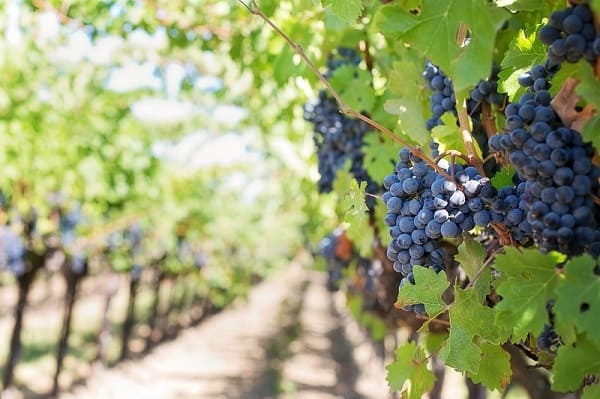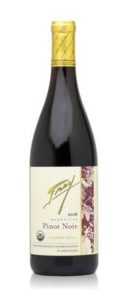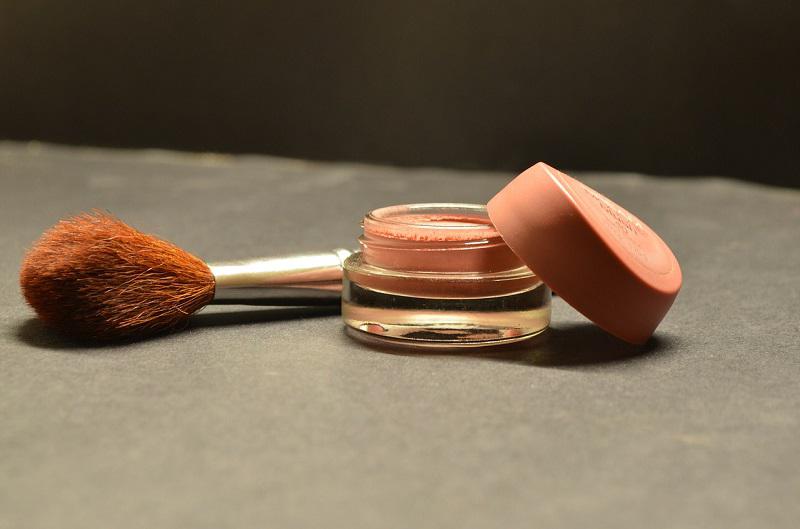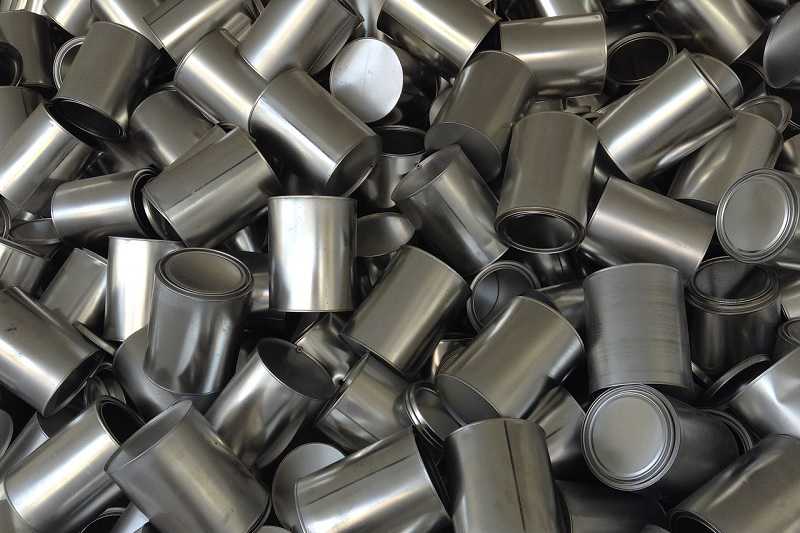Many of us love to unwind at the end of a busy, stressful day with a glass of wine, and there’s evidence to suggest that moderate consumption of wine can actually be good for us.
Wine contains antioxidants known as polyphenols, which are said to protect our bodies against heart disease and cancer.
Unfortunately, it’s not all good news when it comes to drinking wine. Most bottles of wine bought from the supermarket or off-license contain additives including sulphites.
Sulphites are used to kill unwanted bacteria during the winemaking process and don’t cause health problems for most people. About 1% of the general population and around 5% of those with asthma are thought to be sensitive to sulphites.
As well as containing a worrying amount of sulphites and other additives, regular wine often uses animal derivatives in the production process, making it unsuitable for vegans, and the farming methods used for producing the grapes may include the use of synthetic pesticides and weed killers.
Table of Contents
What Are Sulphites?
Sulphites (sulfites in American English) have been added to wine for a long time, but what exactly are they? The term sulphite refers to sulphur dioxide, a preservative that prevents oxidisation and keeps the wine from going off.
Sulphites don’t usually cause us much harm, but if you have severe asthma or are one of the roughly 1% of the world’s population with sulphite sensitivity, you’ll definitely want to avoid them.
Even if you don’t suffer from these conditions, high levels of sulphites can cause increased heart rate, headaches, dizziness and an upset stomach.
The amount of sulphites in wine can vary around the world, and this is true for regular and organic wine.
Wine containing more than 10mg/l of sulphur dioxide must be labelled as ‘containing sulphites’ by EU law, including organic wines which may still contain this level (although they usually contain much less).
Even natural wine will contain a very small amount of sulphites that occur naturally during the production process.
One thing to note about sulphites is that they aren’t responsible for giving us a bad hangover as many people believe. It’s more likely ingredients such as tannins, along with dehydration are responsible for a wine hangover.
What Is Natural Wine?

Natural wine is the kind of wine produced without any chemical intervention, with minimum use of technology and is almost 100% fermented grape juice without anything else added.
The grapes are picked by hand then hand-pressed manually, and nothing extra is added to the tanks during the winemaking process.
Natural wines may contain very low levels of sulphites that occur naturally during the production of the wine, but there will be no extra sulphites added.
Because there are no additional chemical preservatives or sulphites added, natural wine usually needs to be consumed more quickly than regular wine.
What’s the Difference Between Organic and Natural Wine?
We’ve talked a little about natural wine, but how does it differ from organic wine? Although similar, they are not exactly the same thing.
Organic wine has to comply with strict rules set by each country’s regulating body (such as Agriculture Biologique in France, or the Soil Association in the UK) in order to be classed as organic.
Most of these regulating bodies don’t permit using most pesticides, fungicides and fertilizers, so organic vineyards will employ natural methods such as planting cover crops and using manure and natural compost.
Although most natural wines are considered organic and don’t use chemical pesticides or fertilisers during the farming process, there is no regulation that requires natural wines to also be organic.
The term ‘natural’ refers to the process of harvesting and making the wine, rather than the organic farming methods used at vineyards.
There isn’t a clear definition of natural wine that everyone agrees upon. According to Tivoli Wines, natural wines should use natural yeasts, ripe and fresh grapes and not be filtered.
On the other hand, organic wine isn’t always considered natural. The grapes and farming methods may meet organic standards, but the production process is often similar to that of conventional wine and involves more intervention, for example, organic wine will usually be filtered, unlike natural wine.
Another type of wine you may hear about is biodynamic wine. This takes the concept of organic wine farming even further and encourages farms and vineyards to become a living system that proactively improves the soil by use of organic composts and preparations, requiring a dedicated commitment from the growers.
What Is Pét-Nat Wine?
If a nice glass of sparkling fizz is your preferred tipple, or you’re looking for something fun for a celebration, then Pet Nat is a good natural choice.
Short for Pétillant-naturel (natural sparkling), Pet Nat is a term used for any sparkling wine using the ‘méthode ancestrale’, where the wine is bottled before primary fermentation, unlike champagne or prosecco which usually have a secondary fermentation in the bottle with more yeasts and sugars added.
Because Pet Nat is made with minimal intervention during the winemaking process, it is often considered to be a natural wine.
Where to Buy Natural Wine in the UK
Natural wine is becoming increasingly popular in the UK, and there are more places to buy it from than ever before.
Buon Vino
Buon Vino is a small shop in the Yorkshire Dales specialising in exceptionally high quality natural, organic and biodynamic wines, supplying them to numerous restaurants and hotels in the North of England.
Buon Vino also has a wide range of natural wines available to purchase from their website. Buon Vino has ten years’ worth of expertise sourcing the very best quality natural wines at competitive prices. One of the wines we recommend from Buon Vino is the Cielloc Bianco Catarrato 2020.
Good Wine Online
Good Wine Online has a great selection of natural wines available to buy from their website, and they consider natural wines to be their speciality.
It’s a great website to order natural wines from, with plenty of clear information about the levels of sulphites in each wine and information on whether the wine has been produced by sustainable farming methods. One of the wines we recommend from Good Wine Online is the Tampesta Roble D.O Tierra de Leon.
Slurp
Online wine retailer Slurp has a section dedicated to truly natural wines that have been made with little human intervention.
This easy-to-use website also lets you filter the options available by type of grape, vintage, region and food pairing, so you can choose the perfect natural wine if you’re planning a dinner party.
Which Sulphite-Free Wine to Buy Online?
Stellar Organics Cabernet Sauvignon No Added Sulphur Wine, 75cl
This wine by Stellar Organics has been tested for the sulphites added. While usually wines can have as much as 200 parts per million, this wine has just 9 parts per million which naturally occurs during fermentation.
This wine has a very fresh mouthfeel which it owes to the soft blackberry fruits and gentle tannins.
The winery is located 275km from Cape Town in an area famous for its spring flowers. The coastal location gives a unique freshness to the wine.
Stellar Organics has also been awarded the ‘Ethical Winery of the Year’ at the Drinks Business Green Awards 2013 and is certified fair trade.
- See on https://www.amazon.co.uk/Stellar-Cabernet-Sauvignon-Sulphur-African/dp/B00AIKFGQ0/ref=sr_1_5?keywords=sulphate+free+wine&qid=1638740637&sr=8-5
Frey Organic Pinot Noir
Frey Wine comes from a third-generation family-owned winery located in Redwood Valley, California. The company believes in minimal manipulation in the cellar, they craft wine without added sulfites, and use organic and biodynamic farming methods.
This light and crisp Pinot Noir can be a cocktail wine or paired with spicy cuisine and fresh seafood. Aromas of plum and flavours of berry and spice are followed by a smooth floral finish.
The Sulphite free wine website has quite a few other good wines listed as well such as Le Quai à Raisins Lopin and Sequerciani Ciliegiolo.
Bohem No Added Sulphur Tempranillo
This organic wine is made from Tempranillo grapes in a winery located in La Mancha, central Spain. The Mediterranean climate has ideal conditions for wine growing.
This wine only has naturally occurring sulphites and no added sulphur. it is relatively inexpensive and gives a good value for money.
We recommend drinking this wine with the classic tuna dish Marmitako.
Chakana Nuna Vineyard 2020 Organic Malbec Red Wine
Chakana winery aims to produce value for money wines through sustainable practices. This wine is made with grapes produced in Nuna vineyards in the foothills of the Andes mountains. Nuna means ‘soul of the land’, Chakana wants to create a better, more conscious relationship between land and humankind.
This wine is organic, biodynamic, vegan and has the Fair for Life certification.
The Argentinian Malbec wine is inky, medium-bodied, dry red with a strong impression of dark fruits. It is different from its French versions in structure and flavour.
Wine experts have suggested that beef, lamb and poultry go best with this wine.
- See on https://www.amazon.co.uk/Chakana-2016-2017-Estate-Malbec/dp/B003OVUV2O/ref=sr_1_14?keywords=no+sulphite+wine&qid=1638864962&sr=8-14
Salvaje No Sulfites Added Syrah/Roussanne
The producer of this wine, Emiliana’s vineyards cover 2,812 acres constituting the largest source of estate-grown organic wines in the world. Emiliana was also certified Carbon Neutral in 2008.
The grapes for this wine are grown using sustainable, organic, and biodynamic agricultural practices and Chile enjoys geography and climate suited to organic farming.
This wine is inky purple, while the nose is of ripe black fruits and has an earthy feel. It has a hint of pepper and nutmeg with blueberry and blackberry. The white Roussanne grapes add balance to the wine.
The wine has also won the Bronze Medal – Drinks Business Organic Masters 2018 (2017 vintage).
Can You Get Sulphite-Free Wine in UK Supermarkets?
Although there’s no such thing as 100% sulphite-free wine, it is possible to buy wines with no added sulphites from most UK supermarkets.
Aldi
Aldi is expanding their wine collection to include a growing number of organic, low-sulphur and biodynamic wines available at reasonable prices. Aldi’s wine experts have chosen a range of organic wines that includes white, red and rosé wine, sparkling rosé and even champagne, so there’s something for every occasion.
Morrisons
Morrisons now sell several organic wines, and Carta Roja Pura is a decent choice. Organic and with no added sulphur, this wine is produced in DO Jumilla in southern Spain, another area of the world where the climate is ideal for naturally sustaining a healthy, organic vineyard.
Morrisons even claim that the lack of added sulphur during the winemaking process “ensures the purity of fruit shines through in every glass”.
Sainsbury’s
Sainsbury’s has a dedicated SO Organic range of wines free of chemical pesticides and fertilisers and with no added sulphates. The range includes all kinds of wine including white, red, and prosecco.
Sainsbury’s also sells delicious, organic no-added sulphates Shiraz as part of the SO Organic wine range.
Once again, Sainsbury’s have looked to South Africa for this wine, which comes from a naturally biodiverse vineyard on the Western Cape. This spicy wine is perfect with red meats and a great accompaniment to barbecued food.
Waitrose
Terre di Faiano Organic Primitivas is one of Waitrose’s best-selling wines, made with organic grapes from Puglia in the South of Italy. Perfect with meat and traditional Italian dishes, this intense ruby-red wine has been a real hit with Waitrose customers.
Conclusion
We’ve listed some of the best no sulphur added wines in this article, but making the choice on which one to drink has to be a personal one. Everyone has a different taste when it comes to wine.
Although it may take some trial and error for you to land on your perfect wine, going for an organic and no sulphur added wine is definitely a healthier choice.

Clare began her career as a technical writer, but since having her boys has worked mostly from home writing content for various websites, including health and beauty and educational resource sites.







What a brilliant knowledgeable site very informative will visit again
Very interesting and informative but prices would have been nice
to contemplate
Excellent! Thank you, a real help in my task to source sulphite free wine for a Christmas present.